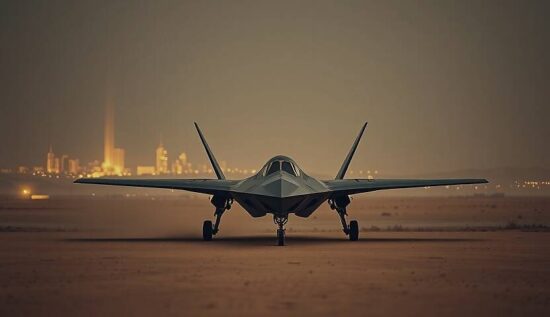German Bank Lowers Estimate of Lockheed Martin’s Stock Value After China Unveils Sixth-Generation Fighter Jet
Following China’s unveiling of a sixth-generation fighter jet, Deutsche Bank has lowered its estimate of Lockheed Martin’s stock value, citing China’s efforts to modernize its military aircraft as the reason.
The presentation of the new Chinese fighter jet has raised concerns for the German bank, as it highlights the inactivity of the US Air Force, which is still operating fifth-generation fighter jets, such as the F-35 and F-22, in comparison to the new Chinese variant.
The sixth-generation fighter jets, expected to be operational by 2030, are designed to use artificial intelligence and operate in tandem with swarms of drones, potentially without pilots, and with the capability to reach space and be equipped with hypersonic missiles.
The presentation of the new Chinese fighter jet has also challenged the plans of leading military strategists, who had previously assumed that cost-effective drones would be the center of defense policy. The US drone war in Afghanistan and the recent Ukraine conflict have underscored this development. However, Deutsche Bank believes that the Chinese “reveal” brings an end to this debate.
The bank notes that drones will not be sufficient for the future military goals of major powers. “In general, we would like to point out that cost-effective drones are only cost-effective because they lack modern engines, and an aircraft without modern engines is an aircraft that, in terms of range or long-range sensor capabilities, does not offer much” says the Deutsche Bank analysis. “And an aircraft without these kinds of abilities will, in our opinion, be unlikely to be very effective in the Pacific. To make it clear: we are convinced that cost-effective drones can play a role, but in our opinion, it will be a supporting role and not one that replaces the status quo entirely.





